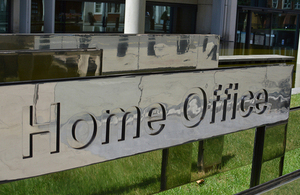‘Right to Rent’ checks introduced for West Midlands landlords
Landlords with properties in the West Midlands will face financial penalties if they rent to illegal migrants under legislation launched on 1 December 2014.

Home Office
Private landlords, letting agents and homeowners who let rooms will need to check the right of prospective tenants to be in the country if they want to avoid potentially facing a penalty of up to £3,000.
The legislation is initially being implemented in parts of the West Midlands including Birmingham, Walsall, Sandwell, Dudley and Wolverhampton.
The government announced in September that the new ‘right to rent’ measures, introduced as part of the Immigration Act, would be phased in across the country.
Immigration and Security Minister James Brokenshire said:
We are building an immigration system that is fair to British citizens and legitimate migrants and tough on those who abuse the system or flout the law.
The right to rent checks will be quick and simple, but will make it more difficult for immigration offenders to stay in the country when they have no right to be here.
They will also act as a new line of attack against unscrupulous landlords who exploit people by renting out overcrowded and unsafe accommodation.
Landlords will need to see evidence of a person’s identity and citizenship, for example a passport or biometric residence permit. Many responsible landlords already do this, and most legal tenants will have the correct documentation to hand.
In most cases landlords will be able to carry out these simple checks without the need to contact the Home Office. In a limited number of cases, such as where tenants do not have their documents due to an ongoing Home Office application, landlords can request a check using the ‘right to rent’ tool. They will receive an answer within two working days to confirm whether they can let to a particular individual.
Landlords can also use the tool see if the checks have launched in their area and what their responsibilities are. There is a helpline on 0300 069 9799.